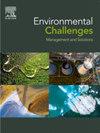从屏幕到溪流:个性化mooc能改善饮用水运营吗?-在厄瓜多尔进行试点研究
Q2 Environmental Science
引用次数: 0
摘要
在厄瓜多尔,221个城市中只有4个认可饮用水消费的质量标签。影响低认证水平的原因之一是水处理操作员缺乏技术技能,主要是由于获得适当教育机会的机会有限。为了解决这一不足,我们在厄瓜多尔开发了两门关于物理化学水处理的大规模开放在线课程(MOOCs),一门是高度个性化的(MOOC++),另一门是不那么个性化的(MOOC+)。本研究的目的是实施一项实验设计,以评估个性化对MOOC版本学习绩效和参与度的影响。我们使用R(4.5.2版)进行多变量数据分析、多级模型和结构方程建模。总的来说,研究结果表明,在训练有素的专业人员的参与和表现方面,更高程度的个性化是有好处的。研究结果证实了投资于mooc个性化的积极影响。然而,研究结果还要求进一步调查数字素养、先验知识和内容类型等因素,以优化水务运营商的个性化学习。本文章由计算机程序翻译,如有差异,请以英文原文为准。
From screens to streams: Can personalized MOOCs enhance drinking water operations? - A pilot study in ecuador
In Ecuador, only 4 out of 221 municipalities accredit a quality label for drinking water consumption. One of the causes affecting a low accreditation level is the deficiency of water treatment operators' technical skills, primarily due to limited access to fitting educational opportunities. To tackle this deficiency, we developed two Massive Open Online Courses (MOOCs) on physico-chemical water treatment in Ecuador, one highly personalized (MOOC++) and the other less personalized (MOOC+). The aim of this study is to implement an experimental design to assess the impact of personalization on learning performance and engagement in MOOC versions. We applied multivariate data analysis, multilevel models, and structural equation modeling using R (version 4.5.2). Overall, the results show the benefits of the higher degree of personalization regarding both engagement and performance of the trained professional. The results confirm the positive impact of investing in the personalization of MOOCs. Nevertheless, the findings also ask for further investigation into factors such as digital literacy, prior knowledge, and content type to optimize personalized learning for water operators.
求助全文
通过发布文献求助,成功后即可免费获取论文全文。
去求助
来源期刊

Environmental Challenges
Environmental Science-Environmental Engineering
CiteScore
8.00
自引率
0.00%
发文量
249
审稿时长
8 weeks
 求助内容:
求助内容: 应助结果提醒方式:
应助结果提醒方式:


